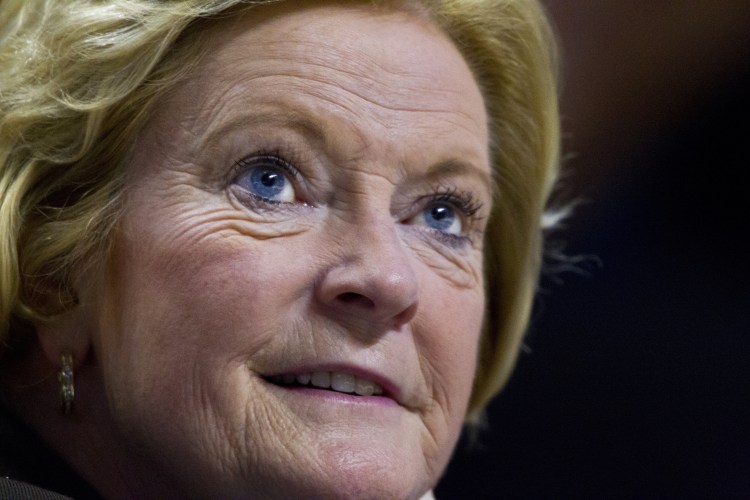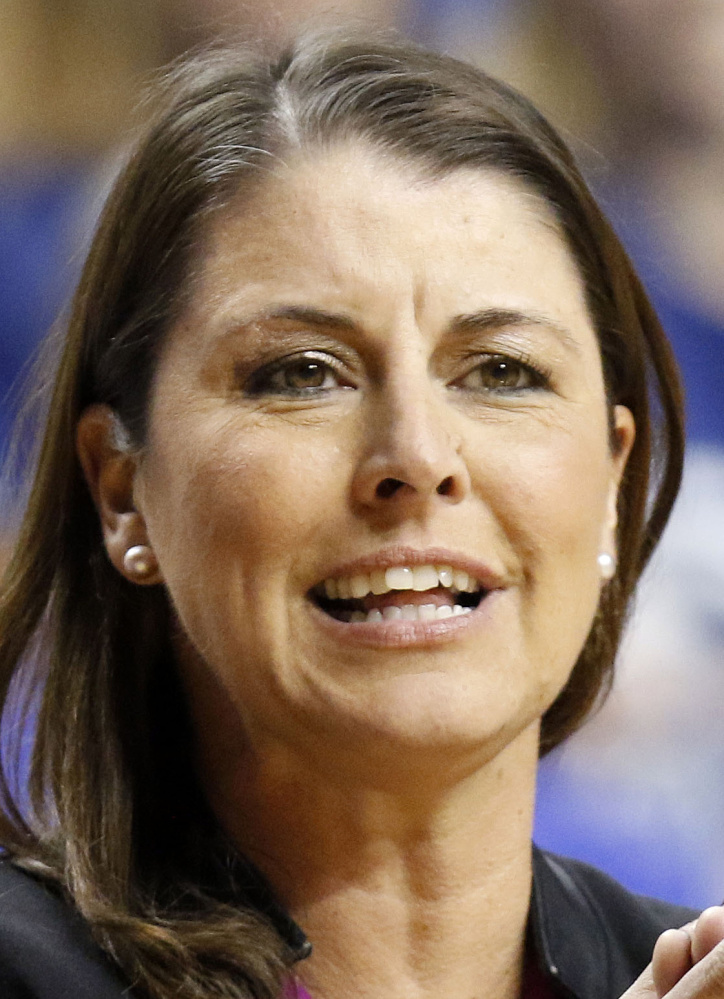Joanne P. McCallie composed herself and walked to midcourt to shake Pat Summitt’s hand.
It was the night of April 3, 2005, and McCallie’s Michigan State women’s basketball team had stunned everyone, rallying from a 16-point deficit with 14 minutes remaining to defeat Summitt’s Tennessee team 68-64 in the national semifinals.
“It was such a great game,” said McCallie. “And when I was shaking her hand afterward, I just said, ‘I’m sorry.’ I know that was a weird thing to say and it makes no sense. But she was such a mentor to me.”
Pat Summitt, who died Tuesday at age 64, was a mentor – and much more – to generations of women’s basketball coaches and players. She was, said McCallie, the Brunswick High graduate and former University of Maine coach who is now at Duke, “the heart and soul of women’s basketball, always will be, always has been.”
Summitt coached Tennessee for 38 years, winning eight national championships and compiling a record of 1,098 wins, 208 losses. She never had a losing season.
But she meant more to the women’s game – and women’s sports – than just wins and losses.
“She was a great advocate for Title IX and women in sport,” said Richard Barron, the UMaine women’s basketball coach. “She was one of the people who kind of changed the perception of what it meant to be feminine. She showed you could be athletic and feminine at the same time. It was like a river cutting a canyon over a 38-year career.
“I don’t know that’s what she set out to do. She set out to win games. That’s what drove her. She was fiercely competitive. She wanted to win. And because of that drive and persistence, she ended up being such a bigger influence than just a coach in women’s basketball. She transcended even sports.”
Summitt was so respected that other coaches – including males – sought her out for advice. McCallie, who began her coaching career at Tennessee rival Auburn as an assistant, used her as a reference when she applied for the UMaine job.
“I just called her office and went through her secretary,” said McCallie. “She knew who I was and that I was interested in the Maine job, and said she was happy to be a reference.”
But that wasn’t surprising.
“Everyone has a story of Pat making a phone call, making a reference,” said McCallie. “It’s amazing how far her reach is.”
It reached down to the high school level as well.
Lynne Hasson, the coach at South Portland High, said she read all of Summitt’s books and Tennessee was “my favorite team forever.”
“Obviously she is at the forefront of women’s basketball, certainly one of sport’s greatest coaches, male or female,” said Hasson. “She did so much, when you look at how she started and women had nothing. She led the way for a lot of women’s coaches.”
Samantha Allen also followed Summitt’s teams closely. Now the women’s basketball coach at the University of Southern Maine, Allen was a star at Lake Region High in Naples, where a poster of Summitt hung in the team locker room.
“Growing up, everybody wanted to play for the Volunteers and everybody knew who she was,” said Allen. “She was somebody we all wanted to play for because we knew she would be tough on us and push us to our absolute brink.”
Allen remembers playing in AAU tournaments attended by Summitt.
“If you got a glimpse from Pat Summitt, it was pure gold,” she said. “Just to be in her presence was awe-inspiring.”
Allen is holding a day camp at USM this week and talked about Summitt to her campers Tuesday. While few knew who Summitt was, Allen said her impact will continue to be felt.
“I look back at a lot of the things she’s done and it’s not that I want to emulate what she’s done, but I want to inspire people the way that she has,” said Allen. “I just really appreciate what she brought to the game.”
Summitt retired in 2012, one year after announcing that she was suffering from early onset dementia.
“She was always very gracious,” said UMaine’s Barron. “She was always willing to help with young coaches; I know she did it with me. She would invite me or my team into practices, give tours of the locker room and talk about the qualities she looked for in players. She was always helpful with my teams.”
When Barron was the head coach at Princeton, he went back and played Tennessee. “It was the best 50-point loss I’ve ever had,” he said.
McCallie said her greatest legacy may be that she demanded excellence from her players on and off the court.
“When I came through, in the early years of Title IX, we studied her, we looked up to her, we understood how great she was at her craft,” said McCallie. “She set the standard so high. She was not afraid to demand of women and challenge women.”
Send questions/comments to the editors.




